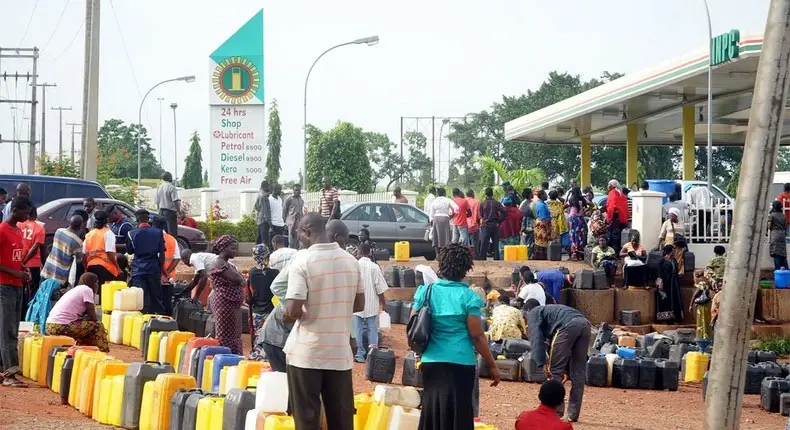EXCLUSIVE: Indications Point to Further Rise in Petrol Prices towards N581 as Exchange Rates Soar
Petrol prices in Nigeria are expected to climb even higher as marketers align their costs with the surging exchange rates, according to strong indications.
Marketers, in discussions with PulseNets, expressed concerns over the continuous depreciation of the naira, stating that this would result in increased costs beyond the current pump prices.
The current national average pump price stands at N500 per litre, established with an exchange rate of N661/$. However, recent findings by PulseNets reveal that major oil marketers in Lagos have already adjusted their prices to N492-495, contrary to the earlier N488 positions put forth by the industry following the removal of subsidies announced by President Bola Tinubu on May 29, 2023.
Moreover, independent marketers in Lagos have further increased their prices to an average of N515, while prices outside Lagos have surged to over N650 per litre.
Marketers predict that with the closing rate at the Investors and Exporters foreign exchange window reaching approximately N770/$, the pump price could soar to N550 per litre by early next month.
Importation Initiatives Begin
As marketers initiate the process of importing petrol under the new market regime, they encounter challenges in raising funds due to the uncertainty caused by forex fluctuations.
Despite a few oil marketers commencing negotiations with banks, the unstable business environment disrupts these engagements. Nevertheless, the oil marketers remain determined to intensify their efforts to import commercial quantities of petrol.
The initial deliveries from companies like 11 Plc, Ardova, and others are anticipated to arrive in mid-July.
CEO of Ardova Plc and Chairman of MOMAN, Mr Olumide Adeosun, commented on the situation, stating that arranging forex, logistics, vessel availability, and other factors affect operations, making it difficult to secure optimal forex at present.
He added that inflows from non-NNPC Limited sources are expected in July 2023. Regarding prices, he warned that prices may increase before they eventually decrease.
Adetunji Oyebanji, the Managing Director/CEO of 11 Plc and a former chairman of MOMAN, confirmed plans for his company to import petrol, stating that it is likely to occur around mid-July 2023. Consequently, major and independent oil marketers will continue to rely on NNPC Limited to procure petrol from the global market for at least the next month.
IPMAN Yet to Commence Importation
Similar to major marketers, the National Operations Controller of the Independent Petroleum Marketers Association of Nigeria (IPMAN), Mike Osatuyi, confirmed that their members have not yet begun importation.
He explained that more funds are now required for the business due to the increased exchange rate, which has risen from over N400/$ to over N700/$.
Discussions with banks are ongoing to secure the necessary funds for importation, a process that will take some time to conclude.
No Fixed Depots Prices
It has been observed that the ex-depot price of petrol has risen significantly over the past few weeks, soaring from over N400 per litre to N515 per litre as of yesterday.
Consequently, the pump price has also increased to over N500 per litre from the previous N488 in Lagos and its environs.
The Executive Secretary of the Depot and Petroleum Products Marketers Association of Nigeria (DAPPMAN), Olufemi Adewole, clarified that depot owners are not obligated to maintain a specific price.
Each marketer determines its own ex-depot price based on individual market fundamentals, and customers gravitate towards more efficient and affordable marketers.
Unscrupulous Practices
In the midst of the downstream instability, some oil marketers have taken advantage of the situation for personal gain, engaging in manipulative practices such as pump price inflation and diversion to maximize profits.
Also Read: Petrol Price skyrockets As Queues Return
The Chief Executive of the Nigerian Midstream and Downstream Petroleum Regulatory Authority (NMDPRA), Farouk Ahmed, did not respond to Vanguard’s inquiries.
However, the agency recently announced the issuance of licenses to six companies for fuel importation into the nation. Although the identities of the companies were not disclosed, sources suggest that Eterna Oil Plc, Emadeb, and Asharami Energy are among the six granted licenses.













